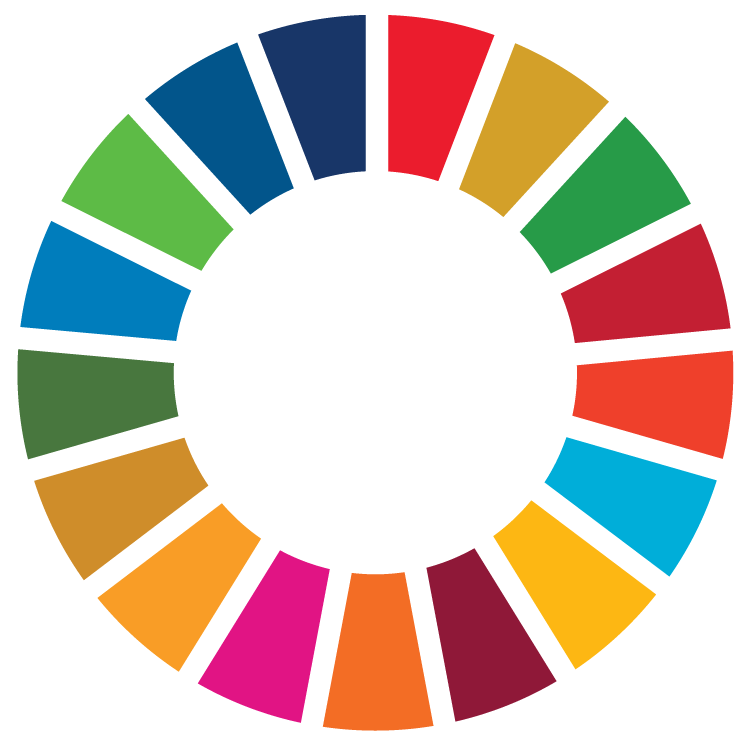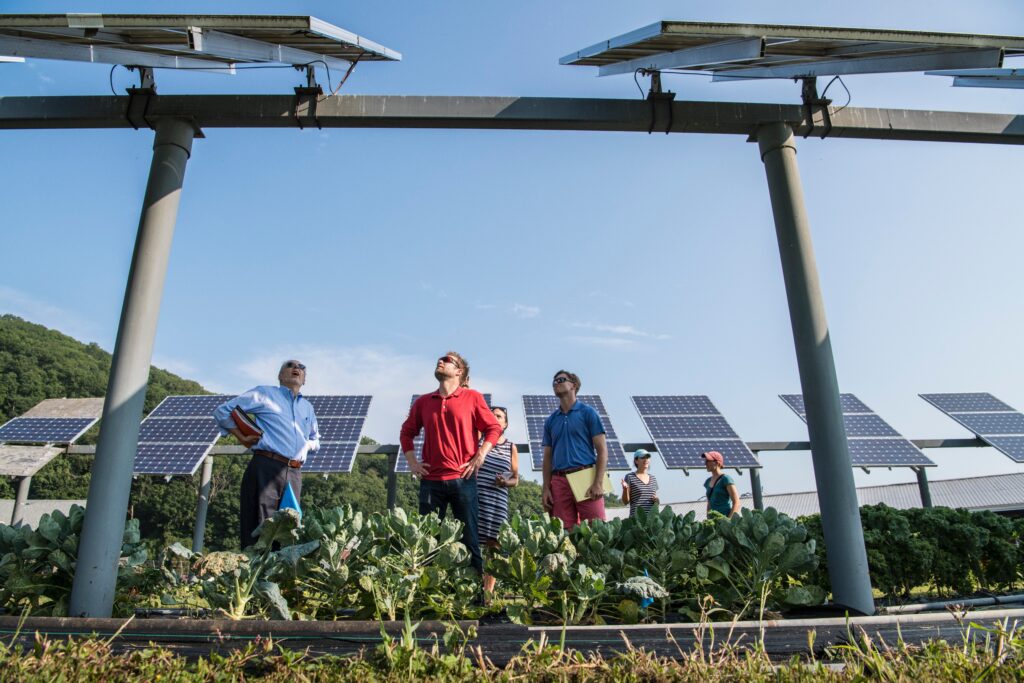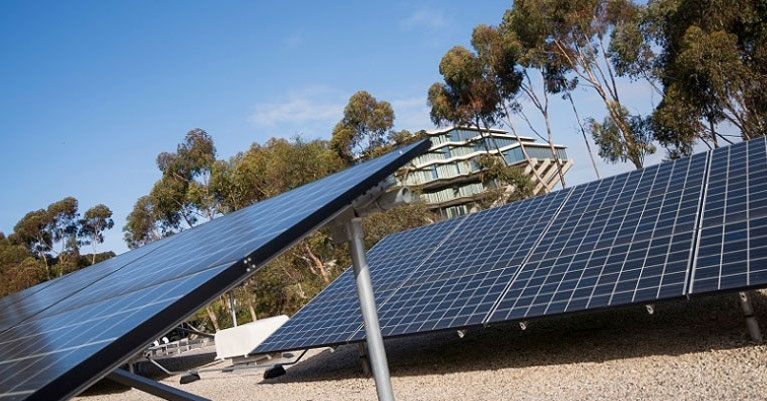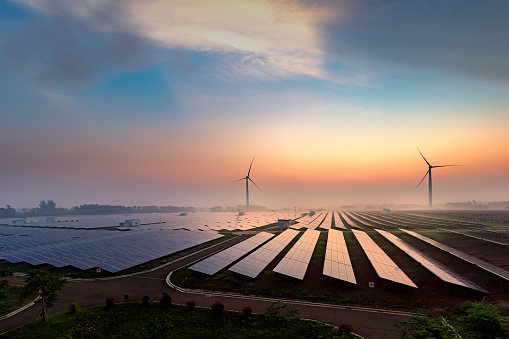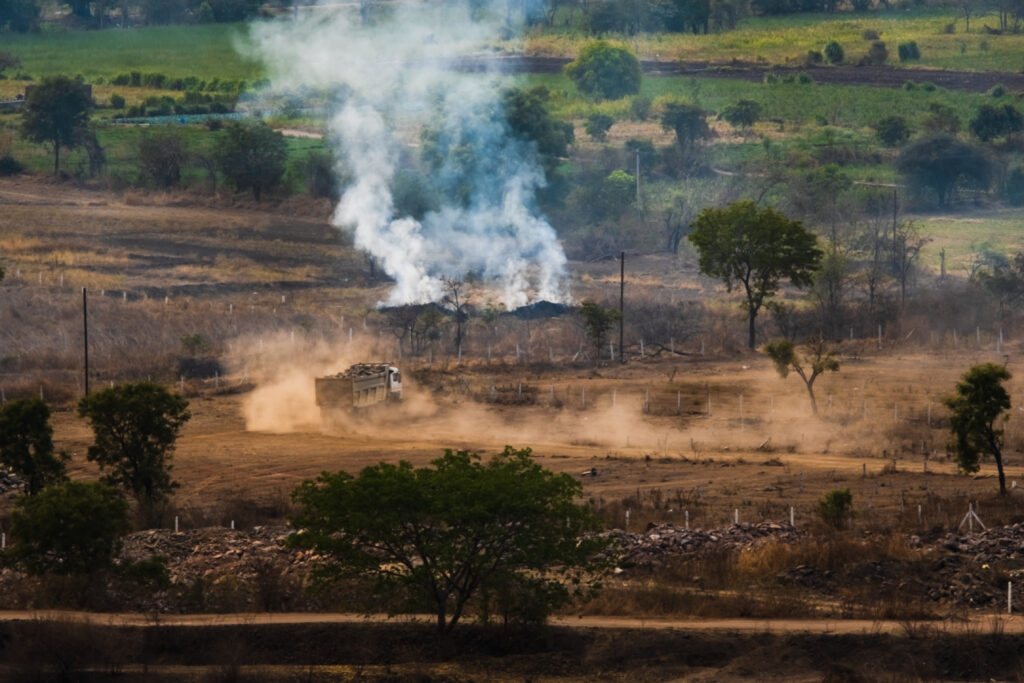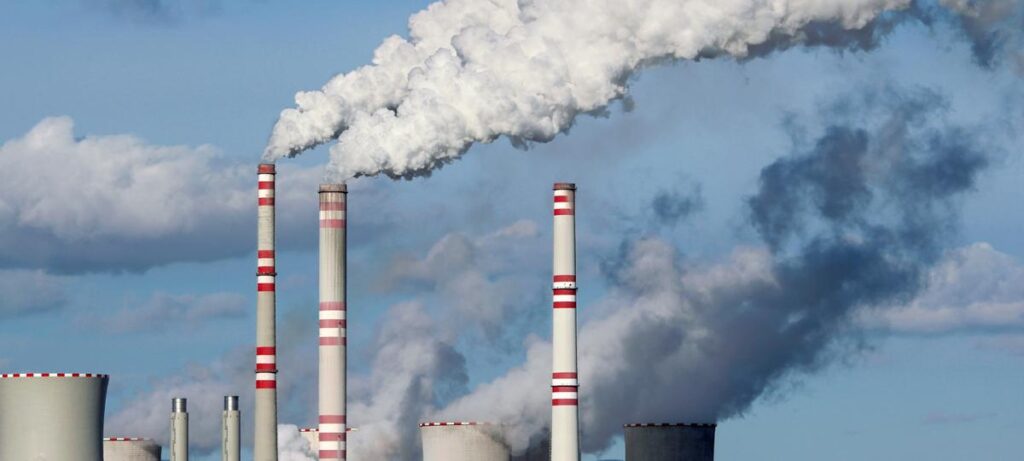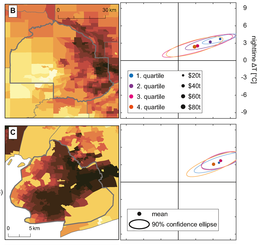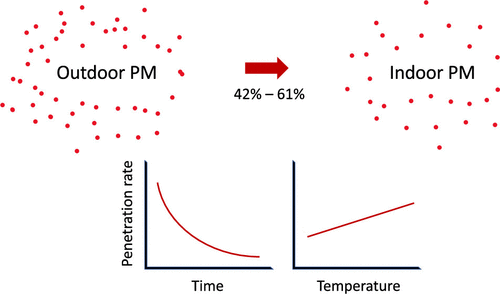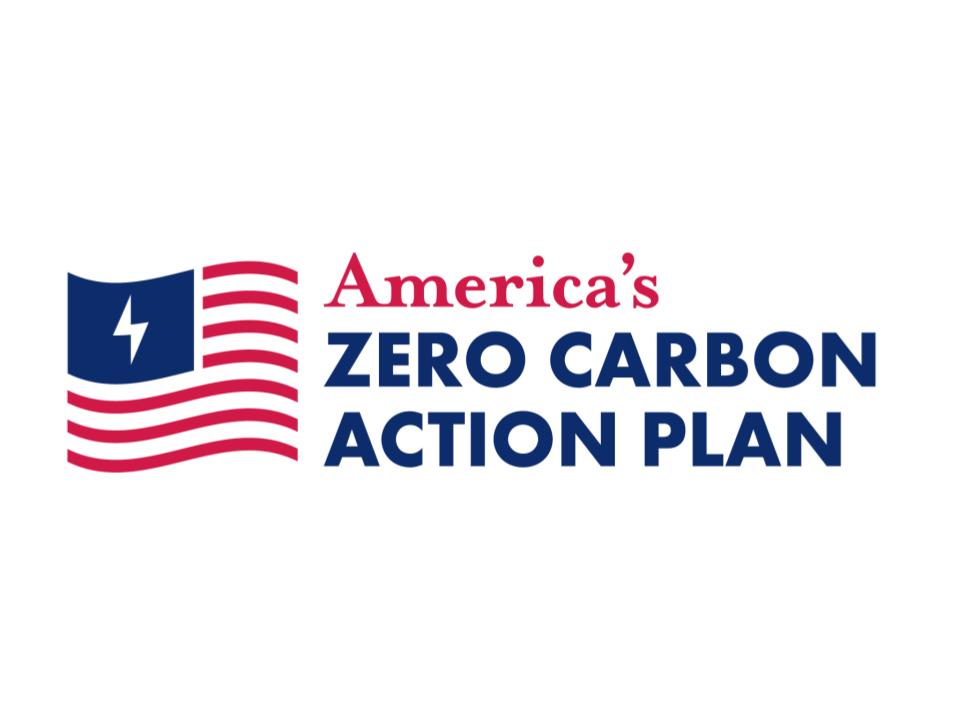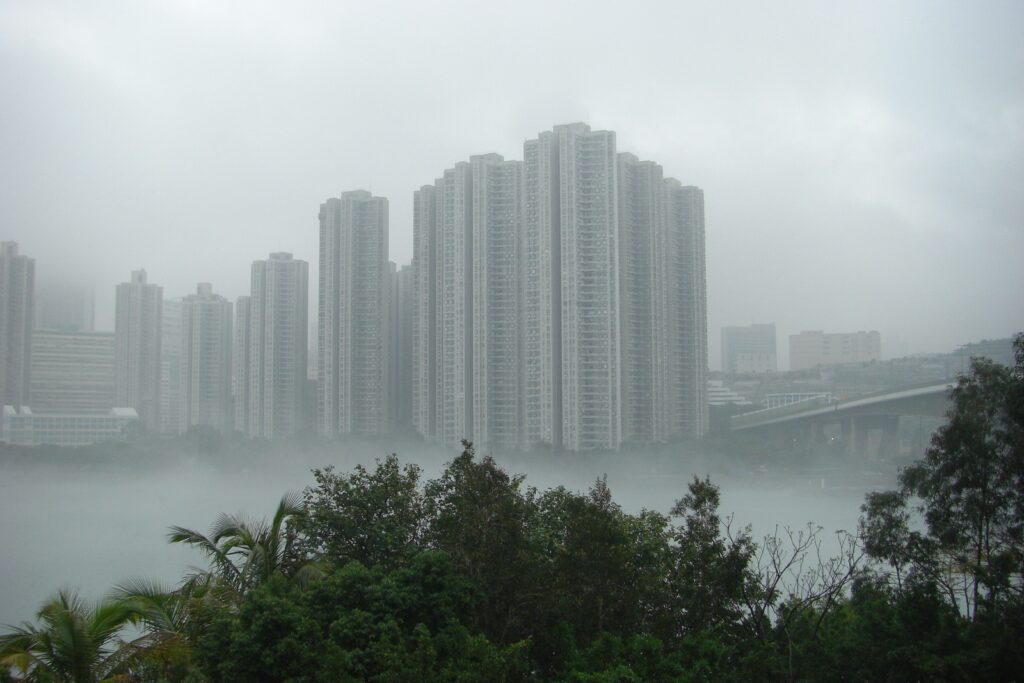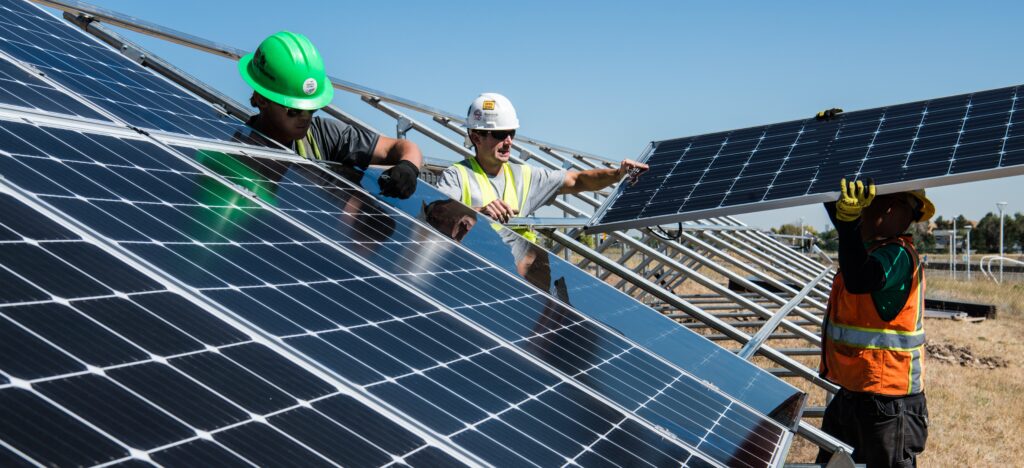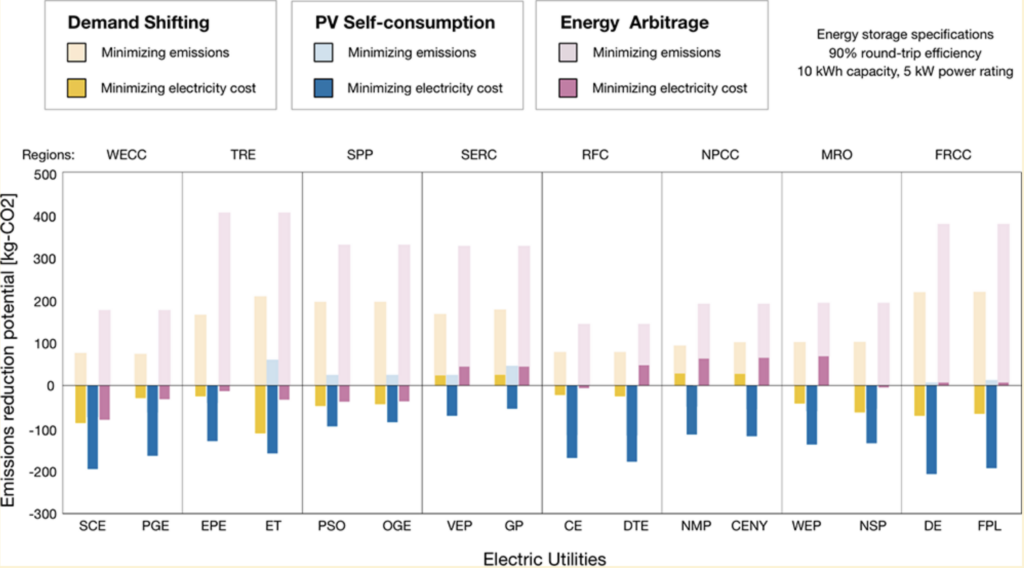In order to achieve zero carbon emissions, the US will need a plan. SDGPI is part of a coalition of the nation’s leading experts who have laid out the path forward to reach zero carbon emissions in the United States by 2050. Watch the Launch Read the Report Climate change represents a profound policy challenge to America and the world – requiring a response at a sweeping scale and with unprecedented speed centered on remaking the energy foundations of…
SDG 11
Substantial progress has been made in reducing the proportion of the global urban population living in slums, though more than 1 billion people continue to live in such situations. Urgent action is needed to reverse the current situation, which sees the vast majority of urban residents breathing poor-quality air and having limited access to transport and open public spaces. With the areas occupied by cities growing faster than their populations, there are profound repercussions for sustainability.
Recent research at the School of Global Policy and Strategy
The Big Pixel Initiative is developing geospatial capacity to address our world’s greatest challenges at scale. Founded in partnership at UC San Diego’s Qualcomm Institute and School of Global Policy and Strategy, we have partnered with the DigitalGlobe Foundation to grow a living, learning laboratory related to everything spatial, to investigate and design best practices in geospatial data visualization, user experience interfaces, and design techniques for scientific discovery and decision-making. Resources The Big Pixel Team has partnered with the…
The mission of the UC San Diego Deep Decarbonization Initiative is to help guide a transition in the global economy toward net-zero carbon emissions. Our aim is to help real societies link the best science and technology with politically realistic economic strategies for putting new energy systems into place on the scale required to make a difference in global carbon emissions while meeting the energy needs of all of humanity. To accomplish this goal, we pursue research from the…
In order to achieve zero carbon emissions, the US will need a plan. SDGPI is part of a coalition of the nation’s leading experts who have laid out the path forward to reach zero carbon emissions in the United States by 2050. Watch the Launch Read the Report Climate change represents a profound policy challenge to America and the world – requiring a response at a sweeping scale and with unprecedented speed centered on remaking the energy foundations of…
In order to achieve zero carbon emissions, the US will need a plan. SDGPI is part of a coalition of the nation’s leading experts who have laid out the path forward to reach zero carbon emissions in the United States by 2050. Watch the Launch Read the Report Climate change represents a profound policy challenge to America and the world – requiring a response at a sweeping scale and with unprecedented speed centered on remaking the energy foundations of…
The Regional Decarbonization Framework (RDF) anchors the San Diego region in emerging best practices from across the nation and globally. It charts science–based, feasible pathways toward expeditious deep decarbonization, proposing a paradigm shift in our local economy. The scale and pace of this effort will require partnerships between public and private sectors, particularly, business, labor and environmental communities. The input from these numerous stakeholders not only shaped the RDF itself, but initiated many of those collaborative efforts needed for…
In order to achieve zero carbon emissions, the US will need a plan. SDGPI is part of a coalition of the nation’s leading experts who have laid out the path forward to reach zero carbon emissions in the United States by 2050. Watch the Launch Read the Report Climate change represents a profound policy challenge to America and the world – requiring a response at a sweeping scale and with unprecedented speed centered on remaking the energy foundations of…
Zero Carbon Action Plan
In order to achieve zero carbon emissions, the US will need a plan. SDGPI is part of a coalition of the nation’s leading experts who have laid out the path forward to reach zero carbon emissions in the United States by 2050. Watch the Launch Read the Report Climate change represents a profound policy challenge to America and the world – requiring a response at a sweeping scale and with unprecedented speed centered on remaking the energy foundations of our society. The move to a clean and renewable energy future must be advanced at the same time America works to recover from the most serious pandemic in a century and the parallel economic collapse triggered by COVID-19. The Zero
2024
Teevrat Garg
The paper explores the unexpected consequences of road construction projects in rural India. While constructing roads to connect labor markets in remote areas is often seen as a positive development, this study reveals a significant drawback. The research finds that such road projects inadvertently lead to an increase in harmful crop fires, which have detrimental effects on both air quality and human health. The paper draws attention to the need for a more comprehensive understanding of the multifaceted impacts of rural infrastructure development, highlighting the importance of considering environmental consequences alongside economic benefits when planning such initiatives in developing regions.
2023
Achyuta Adhvaryu
This paper investigates the health impacts of fossil fuel-driven energy production by exploiting a unique Colombian electricity pricing policy. This policy triggers increased thermal energy production when wholesale electricity prices exceed a pre-determined scarcity price, resulting in heightened local pollution levels. Comparing municipalities near high-capacity thermal plants to those near low-capacity plants, the study reveals a significant increase in cardiovascular-related emergency room mortality (56%) and respiratory-related morbidity (9%) in areas with heightened thermal energy production. These findings translate into substantial health costs, estimated at 996 million USD, considering lives lost and increased healthcare expenditures. The study’s focus on Colombia contributes valuable insights into the health consequences of fossil fuel-based energy production in lower-income countries, shedding light on the global
Jennifer Burney
Remotely sensed land surface temperature measurements are used to explore the distribution of the United States’ urban heating burden. Drawing on urban temperature anomalies during extreme summer surface temperature events from all 1,056 US counties with more than 10 developed census tracts, we find that the poorest tracts (and those with lowest average education levels) within a county are significantly hotter than the richest (and more educated) neighborhoods for 76% of these counties (54% for education); we also find that neighborhoods with higher Black, Hispanic, and Asian population shares are hotter than the more White, non-Hispanic areas in each county.
2021
Jennifer Burney and Joshua Graff Zivin
Using hourly measures across a full year of crowd-sourced data from over 1000 indoor and outdoor pollution monitors in California, we explore the temporal and spatial relationship between outdoor and indoor particulate matter (PM) concentrations. We find that an increase in outdoor PM concentration of 10% leads to an average increase of 4.2–6.1% in indoor concentrations. We also provide evidence showing that penetration rates are associated with building age and climatic conditions. Since people spend a substantial amount of each day indoors, our findings have significant implications for government policies to improve public health through reductions in exposure to ambient air pollution.
David Victor and Gordon McCord
The Zero Carbon Action Plan (ZCAP) will serve as a roadmap for the U.S. based on the latest modeling, research and understanding of decarbonizing six key sectors (power, transport, industry, buildings, food and land use, and materials) supported by technical pathways to zero carbon by 2050, as well as supporting policy recommendations. The ZCAP was designed by a cohort of nearly 100 researchers and 19 Chairs who make up the Zero Carbon Consortium, who are experts in their fields of climate change policy; clean energy pathways modeling; industrial policy high-employment green economies; legislative and regulatory policy; electricity (power) generation; transportation; industry; buildings; sustainable land-use; and sustainable materials management.
David Victor
The COVID-19 crisis has precipitated the largest decline of global greenhouse gas (GHG) emissions on record. Those massive current declines are likely temporary, but they raise important questions about the trajectory of emissions as the economic crisis abates and economic activity resumes. Given the increasing importance of “bottom-up” action on climate, this analysis inventories the various GHG reduction pledges and commitments of the 100 largest U.S. cities; estimates the emissions savings that could result from those pledges; and then evaluates whether U.S. cities appear to be on track to meet their pledges. In this fashion, the information addresses the current array of results on the ground in order to inform ongoing discussions of the potential and limits of “bottom-up”
2020
Zero Carbon Action Plan
In order to achieve zero carbon emissions, the US will need a plan. SDGPI is part of a coalition of the nation’s leading experts who have laid out the path forward to reach zero carbon emissions in the United States by 2050. Watch the Launch Read the Report Climate change represents a profound policy challenge to America and the world – requiring a response at a sweeping scale and with unprecedented speed centered on remaking the energy foundations of our society. The move to a clean and renewable energy future must be advanced at the same time America works to recover from the most serious pandemic in a century and the parallel economic collapse triggered by COVID-19. The Zero
2020
Teevrat Garg
There is a long-standing debate over whether new roads unavoidably lead to environmental damage, especially forest loss, but causal identification has been elusive. Using multiple causal identification strategies, we study the construction of new rural roads to over 100,000 villages and the upgrading of 10,000 kilometers of national highways in India. The new rural roads had precisely zero effect on local deforestation. In contrast, the highway upgrades caused substantial forest loss, which appears to be driven by increased timber demand along the transportation corridors. In terms of forests, last mile connectivity had a negligible environmental cost, while expansion of major corridors had important environmental impacts.
2020
David Victor
Artificial intelligence helps make markets more efficient and easier for analysts and market participants to understand highly complex phenomena—from the behavior of electrical power grids to climate change. There is no reason to believe that these more efficient markets, on their own, will tackle the carbon problem. Instead, they will require overt policy signals.
2019
Joshua Graff Zivin
We investigate the effect of pollution on worker productivity in the service sector by focusing on two call centers in China. Using precise measures of each worker’s daily output linked to daily measures of pollution and meteorology, we find that higher levels of air pollution decrease worker productivity. These results manifest themselves at levels of pollution commonly found in large cities throughout the developing and developed world.
Jennifer Burney
Techno–ecological synergy is a framework for engineering mutually beneficial relationships between technological and ecological systems, as an approach to augment the sustainability of solar energy across a diverse suite of recipient environments, including land, food, water, and built-up systems.
David Victor
In many jurisdictions, policy-makers are seeking to decentralize the electric power system while also promoting deep reductions in the emission of greenhouse gases (GHG). We examine the potential roles for residential energy storage (RES), a technology thought to be at the epicenter of these twin revolutions. When operated with the goal of minimizing emissions, RES can reduce average household emissions by 2.2–6.4%. While RES is costly compared with many other emission-control measures, tariffs that internalize the social cost of carbon would reduce emissions by 0.1–5.9% relative to cost-minimizing operation. Policy-makers should be careful about assuming that decentralization will clean the electric power system, especially if it proceeds without carbon-mindful tariff reforms.
Teevrat Garg
Waterborne diseases are the leading cause of mortality in developing countries. This paper emphasizes a previously ignored cause of diarrhea – upstream river bathing. Using newly constructed data on upstream-downstream hydrological linkages along with village census panel data in Indonesia, the paper finds that upstream river bathing can explain as many as 7.5% of all diarrheal deaths
Joshua Graff Zivin
Climate variability and change are issues of growing public health importance. We analyzed hospitalization data for three unique climate regions of San Diego County alongside temperature data spanning 14 years. Within the milder coastal region where access to AC is not prevalent, heat-related morbidity was higher in the subset of zip codes where AC saturation is lowest. We detected a 14.6% increase in hospitalizations during hot weather in comparison to colder days in coastal locations where AC is less common, while no significant impact was observed in areas with higher AC saturation. Disparities in AC ownership were associated with income, race/ethnicity, and homeownership. Given that heat waves are expected to increase with climate change, understanding health impacts of heat
2018
Uma R. Karmarkar
Using scanner panel data from a single California location of a major grocery chain, and controlling for consumer heterogeneity, the authors demonstrate that bringing one’s own bags increases purchases of not only environmentally friendly organic foods but also indulgent foods.


